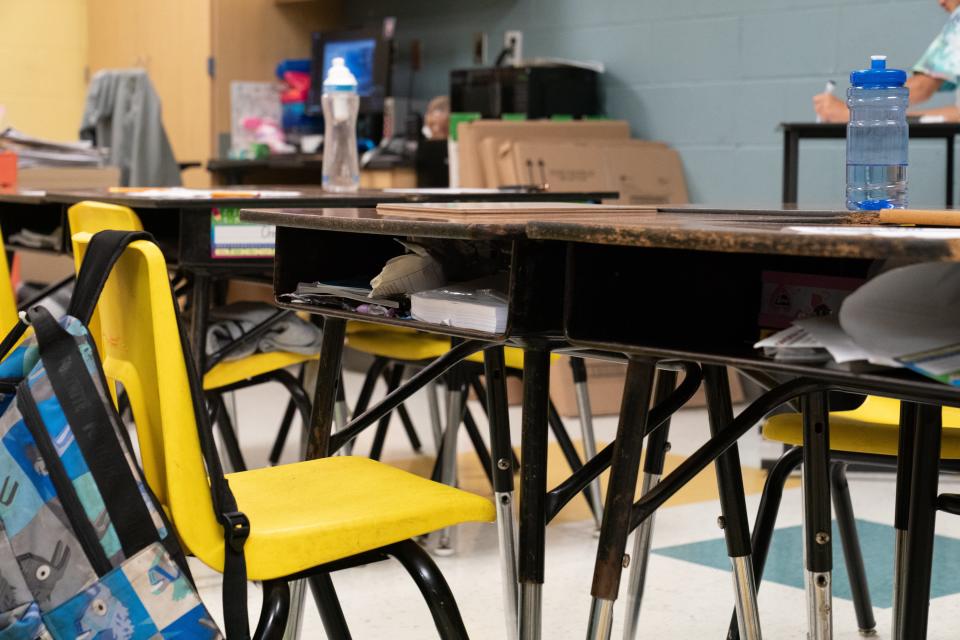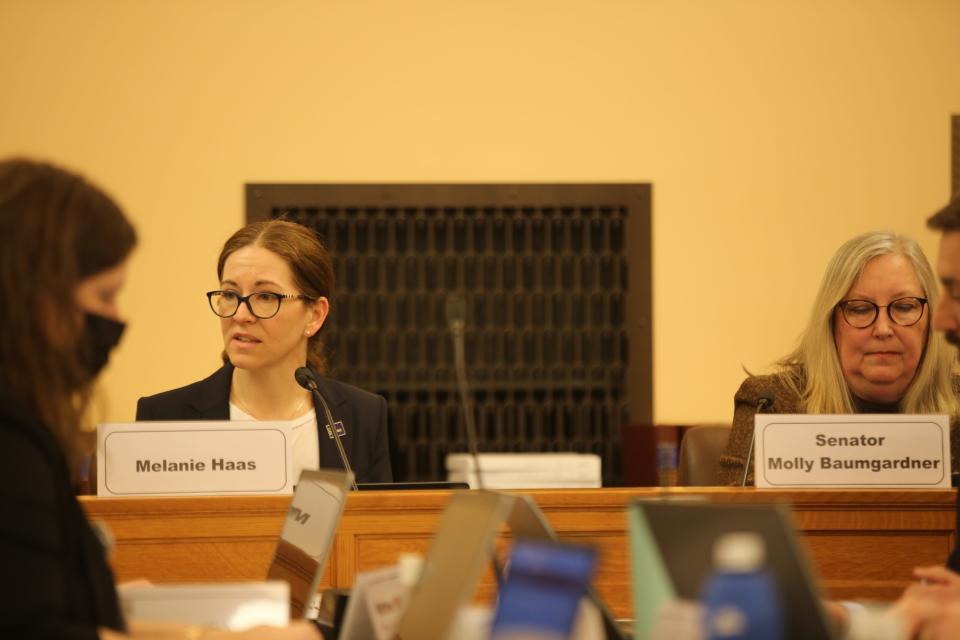Special education task force finally meets. Will Kansas schools get more money?
A long-awaited task force on special education funding is recommending that state lawmakers send more money to schools.
The Special Education and Related Services Funding Task Force voted to recommend the adoption of the Kansas State Board of Education's plan for a phased-in increase to special education fund. Democratic Gov. Laura Kelly has also previously called for phasing in more money for special education, but her proposals have been rejected by the Republican-controlled Legislature.
The four Republican legislators on the task force all voted against increasing special education funding but were outnumbered by the rest of the members, which consisted of one Democratic legislator and people who work in various parts of the education system.
The task force also adopted other recommendations, such as changing distribution dates and providing accountability for data requests, and essentially asked for permission to continue to meet. A proposed recommendation against changing the current funding formula failed to pass.

Meeting on special education funding happens on last possible day
Special education and public school advocates have long argued that the state is breaking its own funding commitment established by state law. But others have argued that more money is unnecessary to provide the required services, instead suggesting a rewrite of the law.
The Legislature's own research department said that in the current fiscal year, schools are being shorted $173 million from covering the 92% of statewide excess costs as the law calls for. That was also the figure cited by the Kansas State Department of Education.
The task force has been a source of political drama around public education.
Despite a state law requiring the task force to study the existing formula for special education funding and submit a report to the Legislature, Rep. Kristey Williams, R-Augusta, refused to call a meeting.
Her hand was forced once a majority of task force members found a procedural move to call a meeting themselves, resulting in Williams scheduling the task force to meet Friday afternoon — the very last weekday before the 2024 legislative session starts.
The task force's first official action was to put Melanie Haas in charge. She is chair of the Kansas State Board of Education.
Sen. Molly Baumgardner, R-Louisburg, suggested the moves to force a meeting came about through communications that violated the Kansas Open Meetings Act — an assertion Haas denied.

Local school districts say they're having to cover for state's obligations
Dozens of people spoke or sent in written comment, which was overwhelmingly in favor of increased funding. One prominent opponent was Kansas Policy Institute CEO Dave Trabert, who argued that special education is not underfunded — and in fact could be viewed as overfunded.
But representatives of two Topeka public school districts said special education services were underfunded by millions of dollars last year, forcing them to use money that would otherwise go to general education services.
Jacqueline Lightcap, a member of the Auburn-Washburn USD 437 Board of Education, testified that nearly $8 million was transferred from the general budget to the special education fund because "these services are required by state and federal law, even when funding is lacking."
Jim Edwards, a lobbyist for Topeka Public Schools USD 501, testified that its figure is nearly $20 million.
"We believe that it is time for the Kansas Legislature to meet the needs of those public schools by adhering to its standard of funding 92% of excess costs incurred," Edwards wrote.
Jason Alatidd is a Statehouse reporter for The Topeka Capital-Journal. He can be reached by email at jalatidd@gannett.com. Follow him on X @Jason_Alatidd.
This article originally appeared on Topeka Capital-Journal: Task force recommends Kansas increase special education funding

